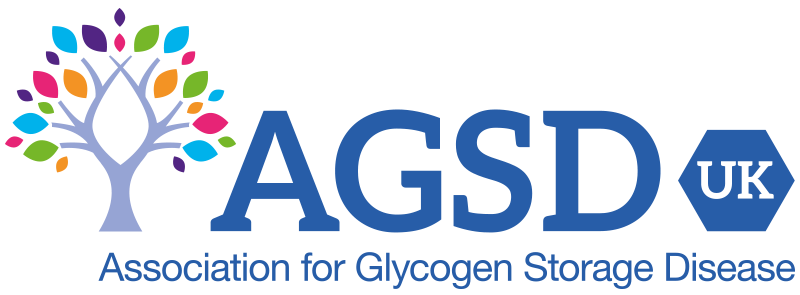On 7th May, AGSD-UK hosted the 3rd in a series of meetings of UK metabolic specialists. They discussed a whole range of topics relating to the monitoring and dietary management of people with hepatic GSDs.
Set of UK hepatic guidelines planned
It is expected that a set of UK guidelines for the treatment and management of hepatic GSD patients will eventually be produced. The process of data gathering, analysis and publication is going to take several years to complete. However, these teams from across the UK are working together with great enthusiasm.
AGSD-UK encouragement and hosting
It’s worth noting that this process would not be underway without the original encouragement of the AGSD-UK and our hosting of meetings every 6 months.
UK wide representation
Allan Muir, AGSD-UK Charity Director, and Ailsa Arthur, AGSD-UK Trustee, attended this most recent meeting. Dr Helen Mundy of the Evelina Children’s Hospital, London, chaired the meeting. Representatives from 12 hospitals in England, Wales and Scotland regularly attend these meetings..
We will keep you informed of future developments.
The wide-ranging discussions included:
Bio-banking: The group are establishing which hospitals offer these services
Prealbumin in hepatic/ketotic GSDs: Many patients and families are asking for levels of prealbumin to be measured but it is not clear whether levels are routinely measured, consistent, or what the measurements can reveal.
Adenomas: The team are hoping to investigate the pathogenesis of hepatic adenomas through studying liver biopsies.
UK GSD1 patients in Copenhagen fructose study: The group are considering whether the study protocol can be modified to make it more affordable and which age groups would be most appropriate.
GSD1b survey of outcomes: The survey includes post-transplant and Inflammatory Bowel Disease. Much data has been collected from the UK centres and it is currently being analysed.
Longitudinal DXA scan study and related information: Collecting historical data of bone mineral density is proving to be very time-consuming due the huge quantity of non-digital records.
GSD3 protein and carbohydrate supplements: Data has been collected from centres and a group of dietitians is being set up to move forward. The aim is to produce guidelines to be hosted on the BIMDG website.
Comparison of feeds: The centres are collecting data on the different feed regimens being adopted for adults and children including continuous feeds, and the use of uncooked cornstarch overnight, early or late in the day.

